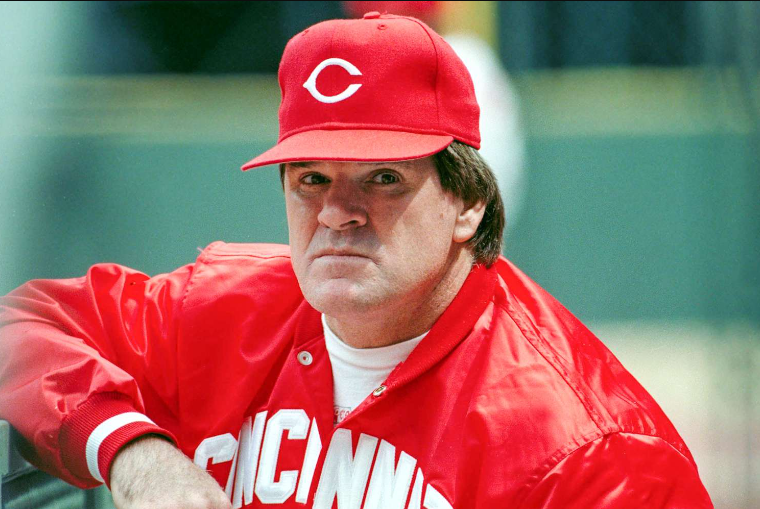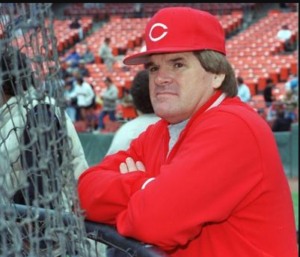
Baseball legend Pete Rose’s cause of death revealed

Pete Rose, a name that evokes a myriad of emotions and discussions within the world of baseball, passed away at the age of 83, leaving behind a complex legacy. Known as “Charlie Hustle,” he was not only the all-time leader in Major League Baseball (MLB) hits, with a staggering 4,256, but he was also a figure marred by controversy, particularly due to his lifetime ban from baseball following allegations of gambling. This decision has overshadowed much of his career and continues to fuel debates about his place in the sport’s history.
At the time of his death, Rose’s net worth was estimated to be around $3 million, according to Celebrity Net Worth. This figure, while substantial, is notably less than what many might expect for a player of his caliber and significance in baseball history. Throughout his career, he earned approximately $7.1 million as both a player and a manager, with his highest earning year being in 1986 when the Cincinnati Reds paid him $1 million for his managerial role. His most lucrative playing contract came in 1979 when he signed a four-year deal with the Reds worth $3.225 million.
However, Rose’s financial landscape changed dramatically due to his ban from baseball, which he claimed cost him an estimated $100 million in potential earnings since 1990. This figure includes lost wages as a manager, endorsement opportunities, and the inability to participate in the sport that had defined his life. During his divorce proceedings in 2011, his ex-wife claimed he made over $1 million annually from endorsements and autograph signings, although Rose contested this figure, stating it was closer to $600,000 per year. Such discrepancies highlight the complexities of his financial dealings, especially in light of his tarnished reputation.
Real estate also played a role in Rose’s financial portfolio. In 2014, he sold his home in Sherman Oaks, California, for $1.96 million, a property he purchased for $913,500 in 1999. This transaction reflects not only his ability to capitalize on real estate investments but also underscores the fluctuations in his financial stability, especially after his ban from baseball.
Despite the controversies surrounding him, Rose remained a prominent figure in the world of sports memorabilia. He participated in autograph signings and collectibles events, maintaining a connection with fans and the baseball community. His last public appearance occurred at the Music City Sports Collectibles and Autograph Show in Nashville, just a day before his death, where he was seen using a wheelchair and engaging with former teammates.
The circumstances of Rose’s passing add another layer to his already intricate narrative. He was found deceased at his home in Clark County, Nevada, with the coroner’s office confirming that he died of hypertension and atherosclerotic cardiovascular disease. These health issues were not new to Rose; he had disclosed in 2018 that he was “currently disabled and can barely walk or travel,” and he had undergone multiple heart procedures in recent years. His declining health had been a concern among his peers, with fellow Reds legend Johnny Bench expressing worry over Rose’s condition during a collectibles event.
Throughout his career, Rose was often characterized by his relentless hustle on the field. He played with an intensity that was both admired and critiqued, embodying the spirit of competition. Yet, his downfall came not from a lack of talent or effort, but rather from choices he made off the field. The MLB’s investigation into his gambling activities while managing the Reds led to a ban that has forever altered how he is viewed in the annals of baseball history. Many fans feel that his contributions to the sport should warrant a place in the Hall of Fame, but the gambling scandal continues to serve as a significant barrier to that acknowledgment.
Despite his tumultuous relationship with the sport, Rose’s impact on baseball cannot be overstated. He was a versatile player who could excel in multiple positions, and his ability to hit consistently made him a formidable opponent. He won three World Series championships, three batting titles, and was selected to 17 All-Star games throughout his career. His tenacity and work ethic have set a standard for aspiring players, illustrating what it means to give one’s all in pursuit of greatness.
In the wake of Rose’s death, discussions about his legacy will undoubtedly resurface. Fans will reflect on the duality of his career—his achievements on the field juxtaposed with the controversies off it. His story serves as a cautionary tale, emphasizing the delicate balance between success and personal choices. For many, Pete Rose will remain a symbol of both the heights of baseball excellence and the depths of its pitfalls.
Looking back, Rose’s life and career evoke a rich tapestry of experiences that go beyond statistics and records. He was a family man, a competitor, and a controversial figure whose choices resonated deeply within the sport. As baseball fans mourn his passing, they will also celebrate the moments he brought to the game. The lessons learned from his journey—both the triumphs and the failures—continue to resonate within the fabric of baseball culture.
As we navigate the landscape of professional sports, the tale of Pete Rose serves as a reminder of the complexities that come with fame and the weight of one’s decisions. His legacy will live on, not only in the record books but also in the hearts of those who admired his relentless drive to succeed. While he may have been banned from baseball, the impact of his career will forever be a part of the narrative that shapes the sport.
In conclusion, Pete Rose’s net worth at the time of his passing reflects a life that was both illustrious and troubled. As the all-time MLB hits leader, he achieved greatness on the field, but his legacy is complicated by his ban from the sport. With a net worth of $3 million and claims of lost earnings due to gambling controversies, Rose’s story is a profound exploration of talent, ambition, and the consequences of choices made both on and off the field. His death marks the end of an era for a player who defined a generation and whose life will continue to spark debate and reflection for years to come.

Leave a Reply